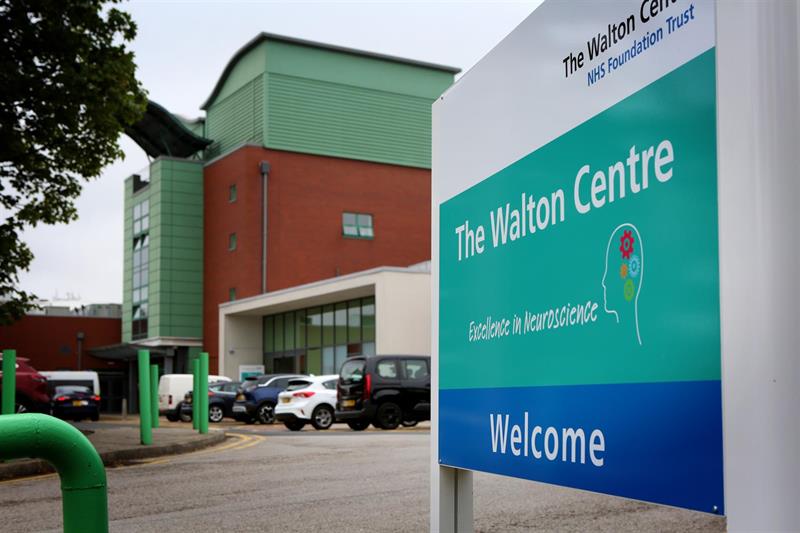Interventional Radiology
Service contact information
Service detail
Angiography
Do I have to stay in hospital?
- You will be admitted to a bed, but may not have to stay overnight
- You will have to stay between five or six hours after the test but most people can then go home
What is the test for?
- This test is used to look at your blood vessels in great detail
- Most people are having the blood vessels of the brain looked at
- We are sometimes looking at blood vessels in the neck or spine
Will I be awake?
- Yes, most brain angiograms are done awake
- We can talk to you and make sure you are alright
- We do not use sedation. Sedatives can make it look like something is not right, and can be dangerous
- Some people ask their GP to prescribe them a tablet to take before the test if they are very nervous
How long will it take?
- Most brain angiograms take about an hour
- Spinal angiograms can take 1-2 hours
What are the risks?
- The most common problem is bruising at the groin
- Rarely people have a mini stroke (less than 1 in 100), which goes completely within 24 hours
- Very rarely (less than 1 in 1000) people have a stroke
- Allergic reaction to the X-ray dye is very uncommon in angiography
Please call 0151 556 3680, to let us know if:
- You are diabetic
- You have kidney problems
- You have had a reaction to X-ray dye in the past
- You are on drugs to thin your blood e.g. warfarin, clopidogrel
- You could be pregnant
For more information, please see our patient information sheet.
Arteriovenous malformation (AVM) treatment
An Arteriovenous malformation is an abnormal connection between the high pressure arteries and the low pressure veins. This can be found accidentally when a patient has a scan for another reason. Some AVMs present with brain haemorrhage, epilepsy, or other symptoms. Planning treatment is very complex, as it can involve surgery, radiotherapy, and something called embolisation. Embolisation is performed in the Neuroradiology Department. For more information please see our patient information sheet.
Cerebral aneurysm treatment
Aneurysms are bulges in the walls of blood vessels.
They can be associated with problems such as brain haemorrhage, and pressure on the brain or nerves.
If it is felt they need treatment, this is usually done in the Neuroradiology Department.
For more information please see our patient information sheet.
Mechanical thrombectomy treatment of acute stroke
A stroke is caused by a blockage in one of the arteries that supply blood to the brain. When the blood supply to the brain has been blocked it does not receive the oxygen and nutrients it needs and can become irreversibly damaged.
Mechanical thrombectomy is an emergency procedure to remove the blood clot and return the blood flow to your brain. This procedure ideally needs to be done within 6 hours of stroke onset although this may be longer in some people.
The procedure is performed by an Interventional Neuroradiologist who uses special equipment, such as a small wire mesh (stent retriever) or a small suction device, to remove the clot and return the blood flow to the brain. The procedure usually takes 12-15 minutes but in some cases can take longer.
Getting here
The Walton Centre - Main Hospital Building

This building hosts many of our in-patient services, including wards and theatres, and some outpatients services.
Address
Lower Lane, Liverpool, L9 7LJ
Directions and map
- View The Walton Centre - Main Hospital Building on a map
- Get directions to The Walton Centre - Main Hospital Building
The Walton Centre NHS Foundation Trust is not responsible for third-party sites or content.
Interventional Radiology Consultants
Dr Arun Chandran
Consultant Interventional and Diagnostic Neuroradiologist at The Walton Centre, Honorary Consultant Interventional Neuroradiologist at Alder Hey Children’s NHS Foundation Trust and Honorary Clinical Lecturer at the University of Liverpool.
Dr Mani Puthuran
Dr Mani Puthuran is a Consultant Neuroradiologist at The Walton Centre.
Dr Oluwafeyiseye Babatola
Dr Feyi Babatola has been a Consultant Interventional Neuro Radiologist at The Walton Centre since February 2021.
Dr Gilbert Gravino
Dr Gilbert Gravino is a Consultant Interventional Radiologist at The Walton Centre.
Page last updated: 23 June 2021
64